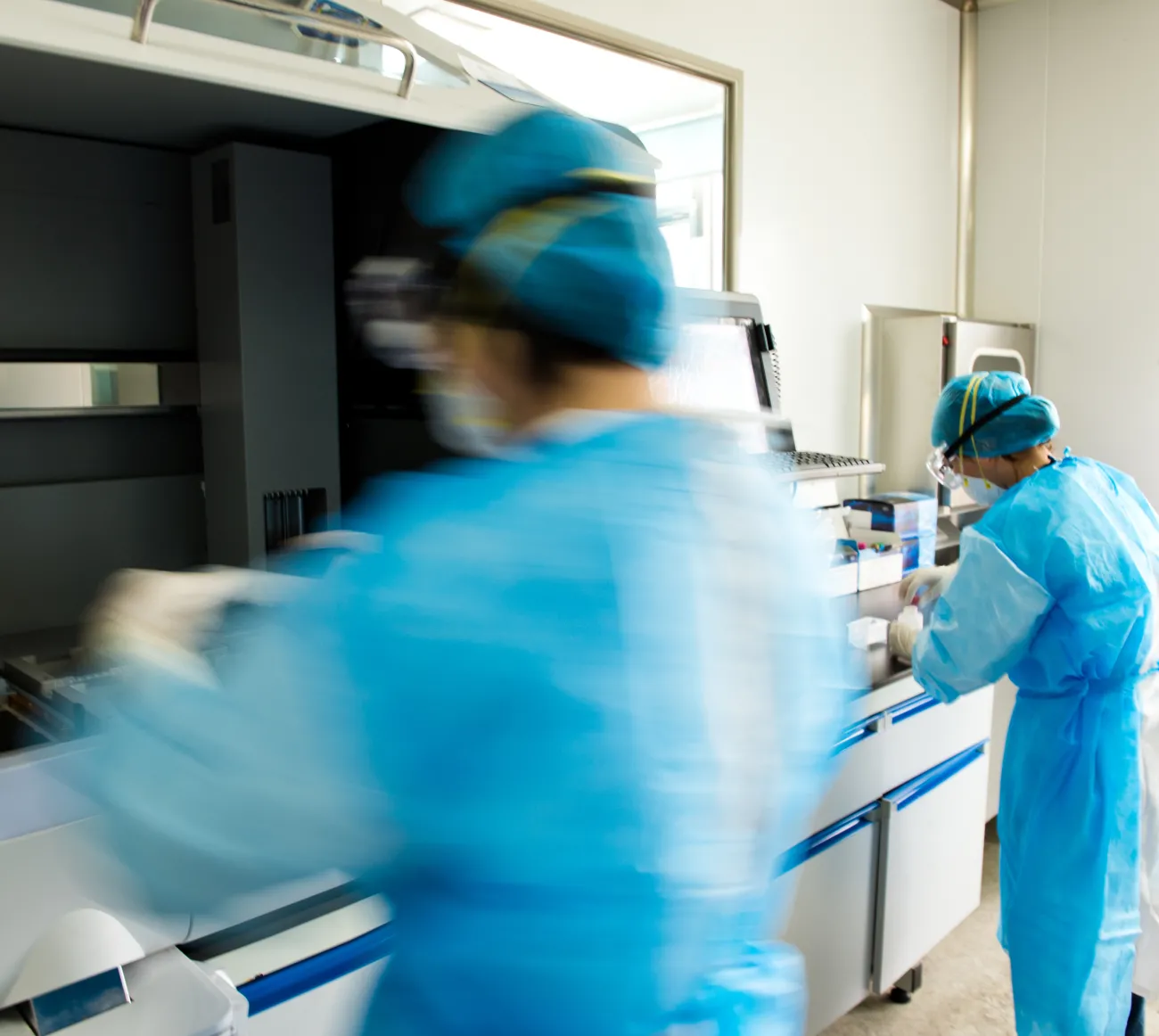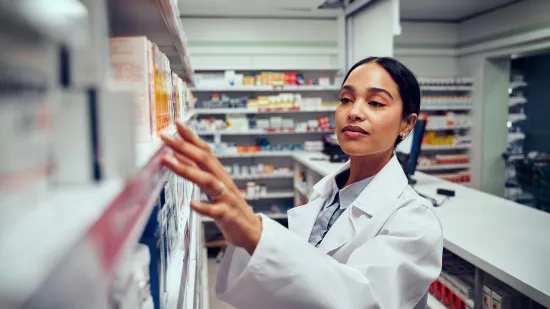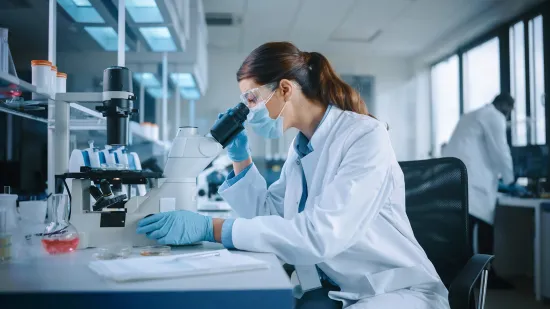EMS
The Importance of Enviromental Monitoring in Labs
Author: Rees Scientific
Jun 10, 2024

In the healthcare and life sciences sectors, maintaining precise environmental conditions in laboratories is crucial. It’s not just about meeting regulations but also ensuring the integrity of research and clinical results. This blog post offers practical advice for lab managers on why environmental monitoring is essential, focusing on compliance, sample protection, equipment performance, data integrity, and personnel safety.
Ensuring Compliance
Environmental monitoring helps laboratories adhere to stringent regulatory standards, such as FDA regulations under 21 CFR Part 11. These regulations require detailed documentation and validation of environmental conditions to ensure data integrity and product quality. For labs involved in clinical trials, research, and regulated production, maintaining strict environmental control is essential. Monitoring systems provide the necessary data to demonstrate compliance and avoid fines.
Practical Advice: Regularly review your monitoring data to ensure it meets regulatory requirements. Schedule audits to verify that your systems are functioning correctly and that your documentation is current.
Protecting Sensitive Samples
Sensitive biological samples and chemical reagents require stable environmental conditions. Research labs, for instance, need precise temperature control to preserve the integrity of experiments, while clinical labs must maintain consistent humidity levels to prevent sample degradation. Any deviation can lead to inaccurate results or the loss of valuable samples, affecting the outcomes of clinical trials and research projects.
Practical Advice: Implement robust temperature and humidity monitoring systems that include real-time alerts for any environmental deviations. Train your staff to respond quickly to these alerts to protect your samples.
Monitoring Key Parameters
Effective lab environmental monitoring involves the continuous measurement of key parameters, including temperature, humidity, CO2, and pressure. Each of these parameters plays a critical role in maintaining the stability and reliability of laboratory conditions, as well as ensuring the proper functioning of specific equipment such as freezers, incubators, and cleanrooms:
Temperature:
- Critical for processes such as incubation and refrigeration. Continuous monitoring ensures that temperature-sensitive samples, including those stored in freezers, remain within specified ranges to prevent degradation.
Humidity:
- Essential for preventing sample desiccation and maintaining equipment functionality. Consistent humidity levels are crucial for labs working with biological samples.
CO2 Levels:
- Important for cell culture environments where CO2 levels must be maintained within narrow limits to support cellular growth and function.
Pressure:
- Differential pressure monitoring helps maintain environmental stability, particularly in cleanrooms and controlled environments.
Maintaining Equipment Performance
Laboratory equipment such as incubators, refrigerators, and freezers rely on stable environmental conditions to function correctly. Monitoring systems can alert you to any deviations that might affect equipment performance, helping you prevent malfunctions and extend the lifespan of your equipment. Additionally, regular calibration of monitoring equipment is essential to ensure accuracy and reliability. Environmental Monitoring Systems Calibration helps to verify that instruments are providing correct readings, which is critical for maintaining the integrity of laboratory conditions.
Practical Advice: Schedule regular maintenance and calibration for your monitoring equipment to ensure it remains accurate. Use historical data to predict and prevent potential equipment failures.
Enhancing Data Integrity
Reliable environmental conditions are crucial for the reproducibility and validity of scientific studies. Continuous monitoring provides a detailed record of environmental parameters, supporting the credibility of your research findings. In clinical trials, maintaining consistent conditions is essential for data integrity, as variations can lead to inconsistent results and affect the overall study conclusions.
Practical Advice: Integrate your environmental monitoring data with your lab’s data management systems. This helps ensure that all variables are controlled and documented, enhancing the reliability of your research.
Ensuring Lab Personnel Safety
Labs handling hazardous materials must implement strict environmental controls to protect staff. Monitoring systems can detect deviations in parameters like CO2 levels and pressure in real time, allowing for immediate corrective actions. This is particularly important in research and clinical labs, where maintaining a safe environment is critical for both project quality and personnel safety.
Practical Advice: Conduct regular training sessions for your staff on how to respond to environmental alerts. Ensure that all safety protocols are up-to-date and strictly followed.
Reporting and Frequency
Effective lab environmental monitoring involves setting up appropriate reporting intervals and frequencies. Examples of reporting types and frequencies include:
- All Inputs: Weekly reports at 1-hour intervals to track all critical parameters including temperature, humidity, CO2, and pressure.
Reports should be generated at least monthly to review trends and identify any potential issues. Critical deviations should trigger immediate reports for quick corrective action.
Conclusion
Environmental monitoring is a critical aspect of laboratory management that goes beyond regulatory compliance. It ensures the protection of sensitive samples, maintains equipment performance, enhances data integrity, and guarantees personnel safety. By adopting robust monitoring practices, lab managers can achieve operational excellence and uphold the highest standards in their laboratories.
How Rees Can Help
At Rees, we provide comprehensive environmental monitoring solutions tailored to the unique needs of laboratories in the healthcare and life sciences sectors. Our advanced monitoring technologies offer real-time data collection, remote access, and automated alerts, ensuring that your laboratory conditions are continuously managed and controlled. We offer EMS Preventative Maintenance Services to prevent problems before they occur. Partnering with Rees Scientific allows you to focus on your core research and clinical activities with the confidence that your environmental conditions are under constant surveillance.
Industries We Serve:
- Research Laboratories
- Clinical Laboratories
- Blood Banks
- Pharmaceutical Manufacturing (GMP)
- Biotechnology Firms
- Academic Research Institutions
To learn more about how Rees can support your laboratory’s environmental monitoring needs, please contact us today. Our team of experts is ready to provide customized solutions that ensure the highest standards of compliance, safety, and operational efficiency.



